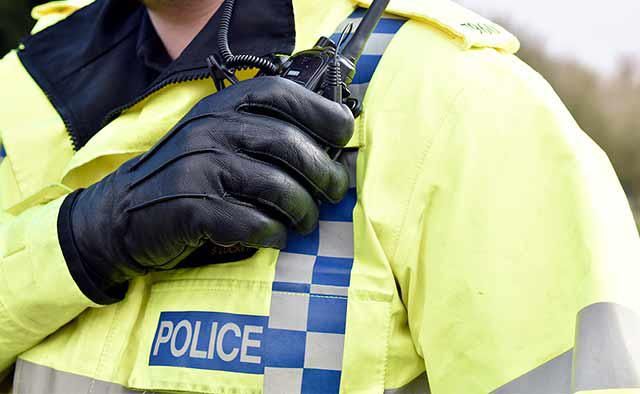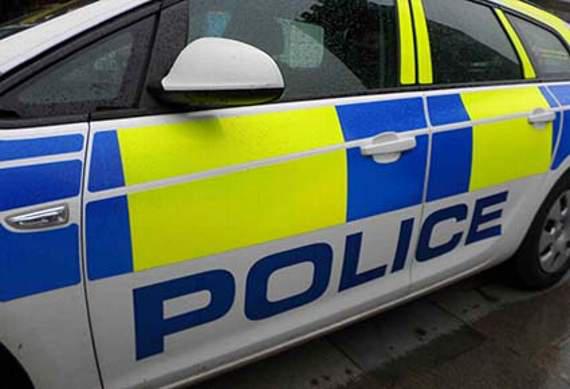Wiltshire Police and the Office of the Police and Crime Commissioner (OPCC) have joined together to launch a romantic comedy-style trailer highlighting the problematic behaviours which constitute stalking.
The two-minute film shows what appears on the surface as a happy couple. However when the relationship ends, the red flags soon appear with the behaviour escalating.
It can be viewed at https://www.youtube.com/watch?v=BLbnQgsyS5E
Stalking is a pattern of fixated, obsessed, unwanted and repeated behaviour which can leave you feeling scared or distressed. You do not have to be threatened with violence to be a victim of stalking. It can be any kind of persistent, unwanted contact which causes distress.
Stalking behaviours can appear small in isolation, but when they are combined into a pattern which follows the FOUR mnemonic - Fixated, Obsessed, Unwanted, Repeated - then victims should record it, keep a log of evidence and report it before it escalates further.
The campaign aims to educate on the 'red flags' which are common in the early stages of stalking but are sometimes misidentified as harmless or even desirable behaviours - a myth often perpetuated through romantic comedies.
The police are also sharing information on local support services, cyber stalking, support friends and family can provide, the dangers of blocking a stalker and workplace stalking. Our campaign will be live on Wiltshire Police and the Office of the Police and Crime Commissioner socials from Tuesday 28 May 2024.
Assistant Chief Constable Mark Cooper said: “This campaign is encouraging victims and their families to spot the signs of stalking, how to report it and get support from organisations across Wiltshire and Swindon.
“Stalking is an intrusive crime, victims are endlessly harassed, their private lives completely intruded. The dangers of stalking should not be overlooked. Stalkers can change their behaviours and as they do, the risk to victims increases.
“We hope that any victims who see this campaign know they can report to us or seek support from FearFree or Swindon Domestic Abuse Support Service.
“At Wiltshire Police we work hard with partners to protect victims and pursue perpetrators.”
Recently, the Office of the Police and Crime Commissioner has funded a new Independent Stalking Advocacy Caseworker (ISAC) and has continued to fund a specialist court Independent Domestic Violence Advocate (IDVA) at the Wiltshire charity FearFree which supports victims through the criminal justice system.
Police and Crime Commissioner Philip Wilkinson said: “The seriousness of stalking and the damaging effects it has on victims has been highlighted recently in the media with several hit series being based on real-life, high-profile cases.
“With this heightened public interest and awareness of stalking, we must ensure that victims of these incredibly invasive crimes are being encouraged to report behaviours that fit into the FOUR framework to Wiltshire Police, as well as having access to the best support available through our work with organisations such as FearFree, Swindon Domestic Abuse Support Service, Horizon and Victim Support – regardless of whether or not they’ve reported a crime to the police.
“We’re already taking steps to do that, and the OPCC have recently run stalking workshops which enabled organisations who work with victims to come together and share ideas and talk about how we can achieve best practice.
“This along with working closely with the force to ensure better internal training for officers and raising awareness of the impact of stalking will contribute towards improving the experience of victims – a clear priority in my police and crime plan.”
For further advice about spotting the signs of stalking and how to report it and seek support, people can visit www.wiltshire.police.uk . In an emergency always call 999.
If a person is not sure whether they are being stalked, they can contact the National Stalking Helpline on 0808 802 0300 or via https://www.suzylamplugh.org/pages/category/national-stalking-helpline
The Domestic Violence Disclosure Scheme gives any member of the public the right to ask the police if their partner may pose a risk to them. It is often called 'Clare's Law.’ This scheme also allows a member of the public to make an enquiry into the partner of a close friend or family member. For more information on this, people can visit https://www.wiltshire.police.uk/rqo/request/ri/request-information/cl/triage/v2/request-information-under-clares-law/?rid=73562
The police say that for those who feel they are being stalked, there is a list - non-exhaustive - of the signs:
- Getting unexpected visits to your home or place of work
- Having persistent phone calls, messages or contact over social media
- Receiving unwanted gifts or items turning up at your address
- Someone interferes or damages with your property, or breaking into your home
- Someone hanging around where they know you visit
- The stalker contacts your family, friends and colleagues to gain information about you, or make complaints
- You receive verbal abuse and/or public humiliation
- Hacking into your social media or your emails
- Spreading rumours/discrediting you
- Threats made against you, your family and your friends
- You are blackmailed
- The stalker seeks physical proximity by applying for jobs where you work; joining the same gym; church; professional/social sports groups or clubs; moving into the same neighbourhood or building
- Identity theft – the stalker pretends to be you
- Running up debt in your name
- Planting spyware - viruses on your computer/laptop
- Tracking your location







Your Comments
Be the first to comment on this article
Login or Register to post a comment on this article